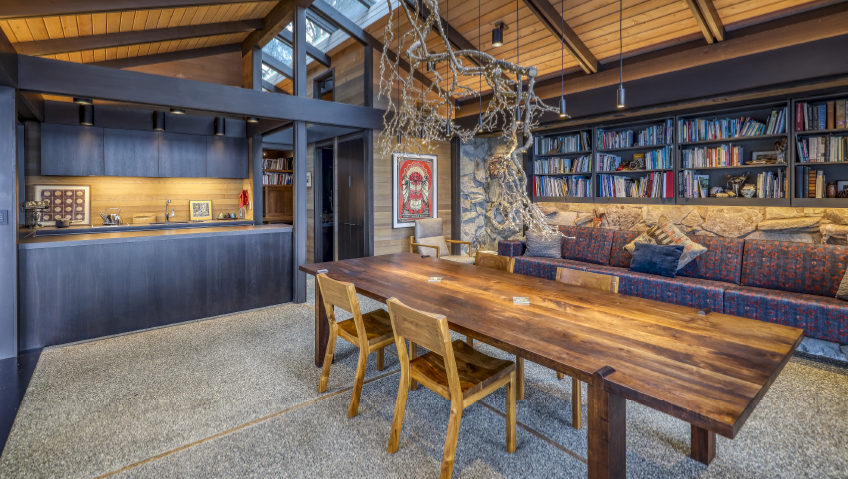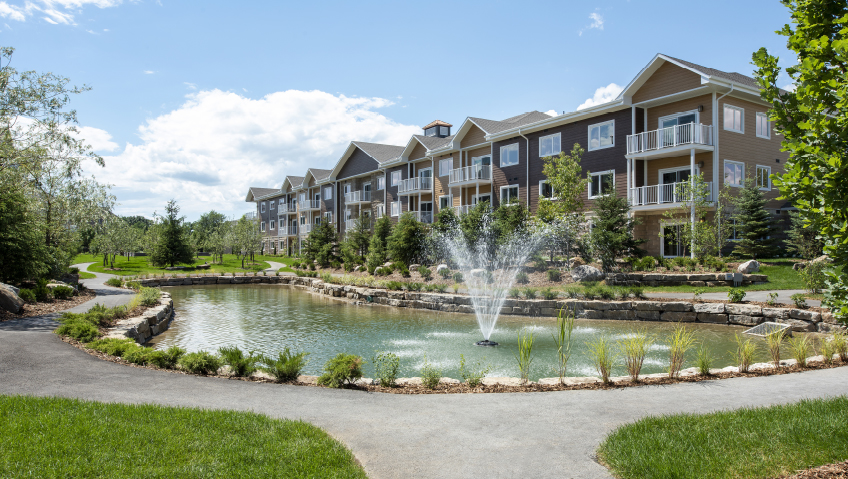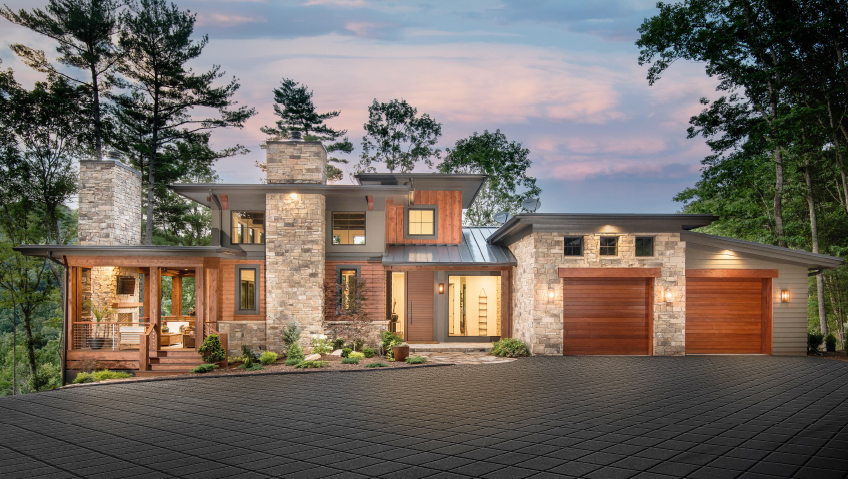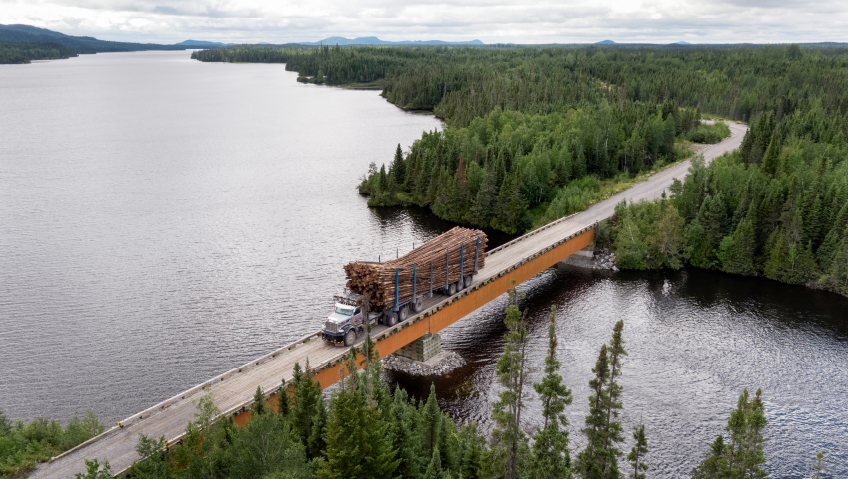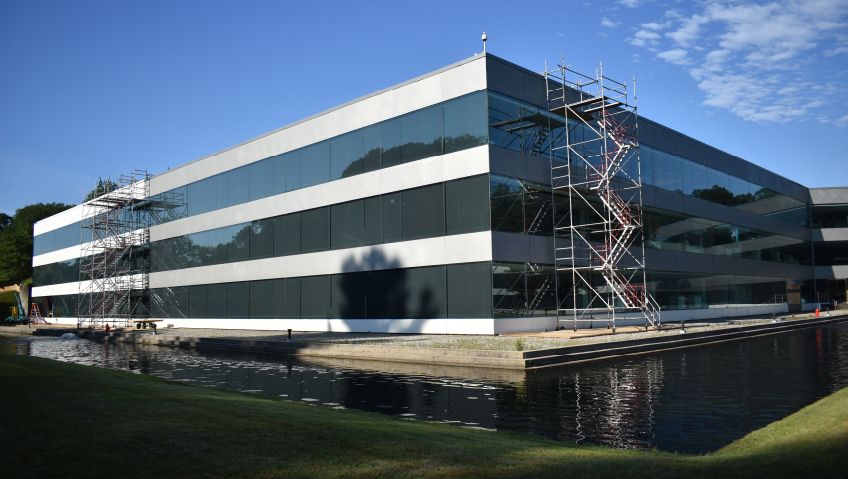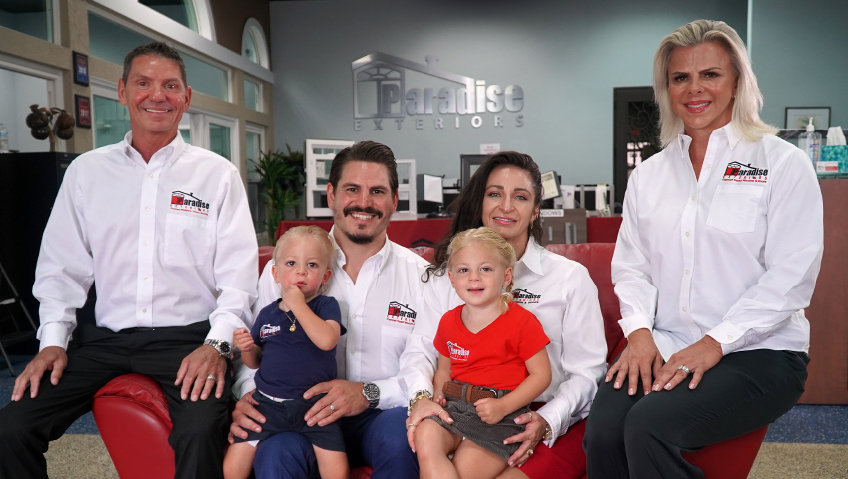You hear a lot about sustainable building these days, but few companies embrace the concept as completely as Clark Construction Inc.
Headquartered on Bainbridge Island, Washington, this employee-owned business is dedicated not only to creating sustainably constructed buildings that showcase excellent craftsmanship, meticulous attention to detail, and exceptional value, but also to fostering strong community relationships.
Founded in 2006, Clark Construction has participated in numerous multi-million dollar projects, all while remaining dedicated to its group, its partners, and the environment.
“It’s pretty exciting to see the growth and what the company is evolving into,” says President and Founder Rachele Turnbull. “When I started the company I wanted to do construction, but I wanted to do it with my father. My father had been diagnosed with early-onset Alzheimer’s and dementia, and he wasn’t able to work alone. So I started the company to work with him.”
Turnbull’s father had been a builder in Oregon since 1987, building small and very affordable homes in his community. In fact, he was most proud of building a house and selling it for less than any other house on the market, says Turnbull.
“That was a source of pride for him and what he wanted to do,” she says. “We started Clark and I had a few people that I had worked with on the island that wanted to join and do projects. I talked to other architects and people I knew who wanted to build homes or do projects, and they said, ‘Hey, can you take these projects?’ And I said, ‘We can do that.’ And from there, we just continued to grow.”
Turnbull has a background in large commercial construction, working over the years on projects including university buildings, hospitals, high-tech facilities, and clean rooms, to name a few.
“When I came to Bainbridge, I was doing some commercial work as well as some residential, and I felt that smaller commercial and residential construction could really use the sophisticated tools and management style of the larger general contractors in big commercial construction,” she says. “That’s how I always ran every one of the projects I worked on, with the same systems you would see when you’re building hospitals and universities. And that resonated with a lot of my clients.”
Clark Construction is employee-owned, so as the company continues to grow, those who join aren’t just getting a job; they’re joining a company where they can also be an owner. Of the approximately 80 employees today, about 40 are owners.
“This is also their company,” says Turnbull. “They have that pride of ownership. When we have meetings to talk about what projects we’re taking on, we always ask them, ‘Is there something you want to do? Is there something that resonates with you that we should go after?’ And we’re building the company based on where the employees want to go and where our clients want to take us.”
This includes the company’s commitment to sustainability, innovation, and affordability, which is always going to be the core of what they want to give back to the community, adds Turnbull. “We always say, people before profit.”
That commitment to sustainability is holistic, she says. It’s not just about green building practices, but also about building sustainable places that people can afford and maintain. It’s also about sustainability within the company, educating and elevating the people and creating a place where the family can grow, learn, and build their entire career in the company. “Sustainability is what we strive for in everything we do,” Turnbull says, “not just in the building we do.”
This means it’s not only building materials Clark is focusing on. One of the company’s projects, the Loom House, is the first fully certified Living Building Challenge residential remodel ever built.
Established in 2006, the non-profit International Living Future Institute established the challenge to support the evaluation of sustainability in the built environment through a stated philosophy, an advocacy tool, and a certification program.
“I believe it’s still the only one, and it’s [aimed at] those projects that are not sustainable for anybody to build,” Turnbull says. “Somebody has to be willing to push the envelope at some point, and these clients did.”
The Loom House, a 3,200-square-foot home made up of an existing north and south home connected by a large outdoor courtyard, was completely renovated to improve the building envelope, provide self-sufficient systems, and offer updated interiors while preserving the original architectural character of the home.
The owner’s electric vehicles and bicycles are housed on the property in a new, 725-square-foot detached carport and storage room, and the interiors feature locally made, custom furniture and home accents made of organic materials.
Surrounding land includes Japanese maples, blooming trees, rhododendrons, and azaleas, while urban agriculture is provided by a mycological foraging forest on the property, with a variety of edible berries and vegetables.
South home’s photovoltaic system powers the entire property while battery storage ensures energy resiliency. Resources are handled and conserved with the use of a greywater treatment system and rainwater cisterns.
Clark’s reHOME Project is notable for demonstrating how it’s possible to reduce construction waste, keep materials out of landfills, and offer affordable homes for communities by applying smart design and strict sourcing strategies.
The award-winning project at Morales Farm emerged from the combined efforts of Clark Construction, Coates Design, Housing Resources Bainbridge, and Friends of the Farms, and features three small cottages constructed with donated labor and salvaged components to offer local farm workers inexpensive living. More than 26,000 pounds of building supplies, with a market worth of nearly $125,000, were kept out of the landfill during the construction process.
“We learned so much and can push that forward to our other projects,” Turnbull says. “Not ones that we want to be LBC [Living Building Challenge] certified, but ones that want to do whatever they can that’s realistic and practical and sustainable.”
The City of Bainbridge Island awarded Clark Construction another unique project involving converting the former Harrison Medical Center into a new police station for the Bainbridge Island Police Department, and a Municipal Court.
“When we were awarded that project, it was really exciting because a lot of demo of new materials was necessary,” says Turnbull. “We had a recycled-material project going on, and I thought, it’s such a great symbiotic relationship between the two. Instead of going in and demoing and tearing things out, which would have been much less expensive, we disassembled everything and reused the product.”
This involved and costly process—funded by Clark—even required volunteers to pull drywall screws out of the studs so that the company could reuse the studs for the reHOME Project.
“That was something really exciting that we could do, where we could pay attention to multiple projects with demolition in them,” says Turnbull. “We focus on what makes sense to reuse, and then everything else, of course, is not put in a landfill but recycled.”
The company also addresses affordable and income-qualified housing, completing projects for tribes as well as for a development group in Port Townsend.
Turnbull is excited. “Not only are we building affordable and transitional housing at as low a cost as possible, but still building a great structure,” she says. “We’re excited that we’re able to take a lot of those things that we’ve learned in projects like reHOME and Loom and put them forth for our income-qualified partners.”
Turnbull is also proud of the ongoing community involvement, and employees who strive to ensure Clark continues to achieve success.
“It comes from our people,” she enthuses. “Those are the people that come to work at Clark. If you didn’t already have that ingrained in who you are, you wouldn’t even gravitate to our company.”
Along with success in the sustainable construction industry, Clark has the distinction of being female-founded, not that common in a male-dominated field.
“Less than 11 percent of the construction / general contractor community are women, and less than four percent in the trades,” says Turnbull. “We focus on what’s important to women workers, and that shows in the fact that about 40 percent of our team is women.”
Turnbull prefers the term female-founded to female-owned, as owning implies one woman owning more than 51 percent of the company, which has never been her intent.
“It was about having multiple women and multiple underrepresented groups being able to own the company,” she says. “That is the vision I had and the direction the company wanted to go. So, using the phrase ‘female founded’ is important. I don’t think people realize that being women-owned requires that kind of constraint in the company.”
As for bringing more women into the industry, Turnbull believes there’s a lack of awareness in girls and women who believe construction is a “guy’s world,” but she says it’s amazing how many people on the development side in particular are women.
“It’s a fun dynamic to be working in. We have women consultants who are the engineers and the architects, tons of women in those industries. For the developers we’re working with, South West Group has a woman in charge of all the projects we’re working on,” Turnbull says. “There are a lot of women in the industry, and to have another woman in construction that they’re dealing with is really nice.”
While there are not as many women running the construction side of projects, women in construction do get excited to hear about female founders and leaders in the industry. It allows girls and women to see themselves in those roles. They can see the potential.
“That’s really exciting because we can also say this is a project that has a woman architect, a woman developer, a woman manager,” she says. “To say we’re able to do that is incredible.”
As for milestones, while many businesses in the building industry might say they want to be a huge company with 300 employees, that’s never been Clark’s goal.
“We don’t say we want to do $100 million in revenue or even $2 million in revenue,” Turnbull says. “We say we want to expand our reach in our community. We’re getting well known for that out there. Our milestones are expanding our reach, and who we are in our community, to more of the region.”
The company currently has a lot in the works, including projects in affordability and community land trust homes, as it continues to glean invaluable knowledge from past projects and moves forward sustainably and with integrity.
“That’s what we want here. We want to be the first company on everybody’s mind,” says Turnbull.
While unearthing builders who are focused on community, sustainability, and people as a whole isn’t the easiest task, Clark Construction will continue to forge its own path. “That’s what we want people to think of in the community. We want to be the example, not just for builders, but for any company in the area. We want to be the example.”

